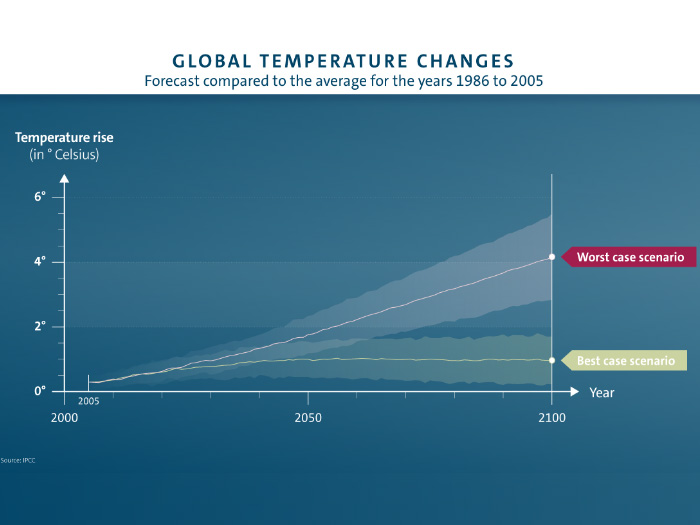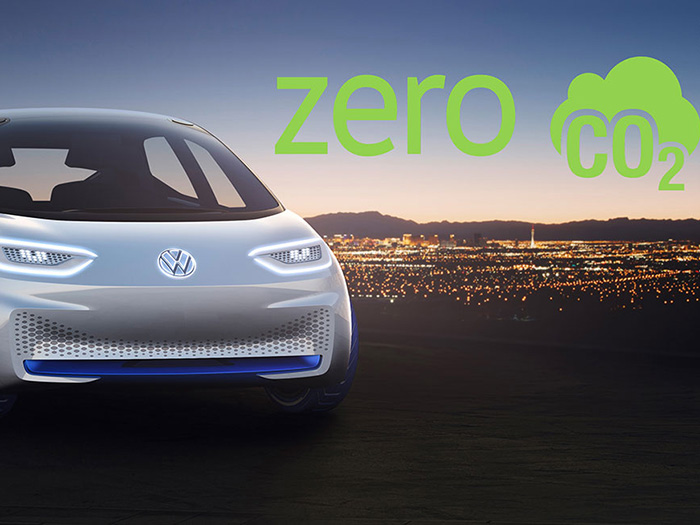Combating climate change: the commitment of the Volkswagen Group
Everyone is talking about climate change. But how serious is the situation? And what concrete steps is the Volkswagen Group taking?
Climate change has become one of the central political issues globally, and was the main topic of the UN Climate Action Summit in recent weeks. It is a complex, contradictory and controversial matter. How serious is the situation? What are the potential consequences? And how can we help limit it? These are just some aspects, which we have tried to summarise in nine key points.

1. According to calculations, if CO2 emissions continue to increase worldwide, the earth will warm up by up to 4 degrees Celsius by 2100. [Source: Special Report: Global Warming of 1.5 ºC]
2. June 2019 was the world’s hottest month since temperature records began in 1880. In Europe, June was more than two degrees above the average. [Source: Climate Change Service]
3. Global warming is getting faster and faster: since 1950, the average global temperature has risen by around 1.32 degrees Celsius. Since 1850 by around 1.53 degrees Celsius. [Source: Special Report: Global Warming of 1.5 ºC]
4. 97 percent of the experts believe that climate change is man-made. [Source: Quantifying the consensus on anthropogenic global warming in the scientific literature]
5. Danger to coasts and islands: sea levels have risen by almost ten centimetres in the past twenty years. But things are accelerating all the time with growth currently at 3.3 millimetres a year. [Source: NASA- Global Climate Change]
6. By the year 2100, sea levels could be almost 2.40 meters higher. [Source: Ice sheet contributions to future sea-level rise from structured expert judgment]
7. It’s not just CO2: methane and nitrous oxide from agriculture as well as the coolant HFC have a stronger greenhouse effect over the same amount of CO2.
8. Livestock farming and fertilization: Agriculture and forestry contribute about 23 percent of man-made greenhouse gases. [Source: Special Report: Global Warming of 1.5 ºC]
9. E-Mobility: The longer an electric car is in use, the better its CO₂ balance per kilometre, measured at a European average.
The commitment of the Volkswagen Group

The Volkswagen Group is working essentially in two areas to reduce CO2 emissions. On the one hand, the company is beginning with full-scale, mass market production of e-mobility vehicles: with the launch of the ID. family, the Group will be the first manufacturer to offer a wide range of all-electric compact, small and luxury vehicles to a broad market. At the same time, it continues to optimise its petrol and diesel engines, as well as developing hybrid models.
In greater detail, by 2023 the Volkswagen Group will have invested around 30 billion Euros in electric mobility, launching around 70 new electric vehicles on the market – including numerous models based on the new Modular Electric Drive Kit (MEB) – and will be well on its way to achieving its ambitious CO2 target of 95 g/km by 2020/21. Over the past 15 years, the Volkswagen Group has reduced pollutant emissions from its diesel and petrol engines by 84 percent and 60 percent, respectively, and its current models now consume 25 percent less fuel than in 2007.
Moreover, diesel engines emit 15 percent less CO2 than other combustion engines. Finally, the latest generation of diesel engines (EA288 evo) from the Volkswagen Group have even lower emission levels, with a further reduction of 10 percent. [Source: Volkswagen Group]
Zero-emissions mobility
In any case, lowering CO2 emissions does not simply require more efficient engines and electric models: it is just as important to conserve resources at the production stage. For this reason, the company also uses sustainable materials everywhere, such as renewable raw materials, with the aim of reducing CO2 emissions over the entire value chain and lifecycle.
The ID.31 is the first certified carbon neutral electric car in the world. This is possible because both the production of the battery cells and the vehicle production use 100% green electricity, produced from renewable sources – and unavoidable emissions are offset with climate protection projects. During the use phase, it is up to the customer to also use green electricity for charging, however. The Volkswagen Group offers green electricity via its subsidiary Elli, allowing purchasers of an electric vehicle to achieve true zero-emissions mobility.
Source: Volkswagen AG
1ID.3 – The vehicle is not yet for sale in Europe.
